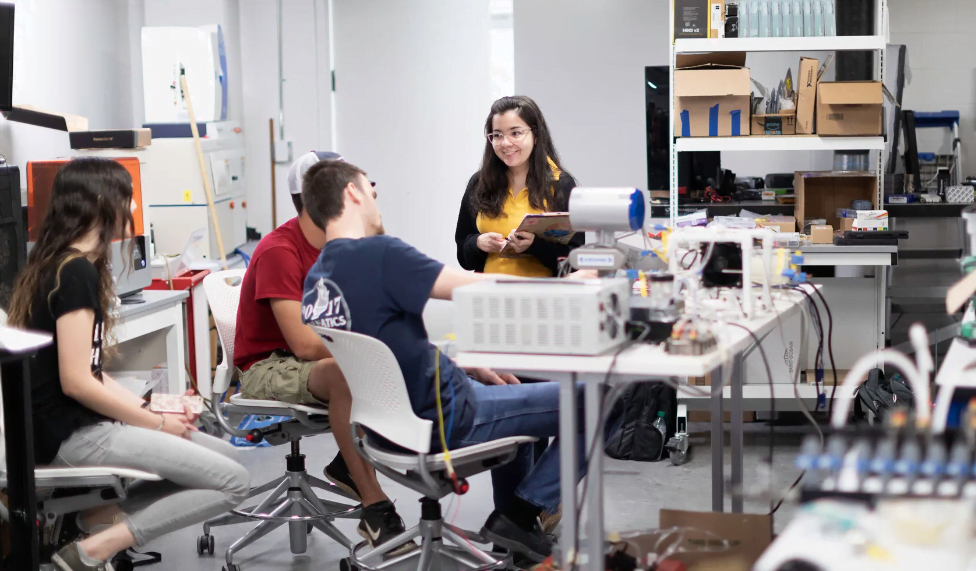Mechanical engineering is often regarded as a challenging discipline that requires a strong foundation in mathematics, physics, and analytical thinking. However, the difficulty of pursuing mechanical engineering varies from person to person and depends on various factors such as individual strengths, study habits, and personal motivation. In this article, we will explore the intricacies of mechanical engineering, shed light on its challenges, and highlight the rewarding aspects of this field.
Table of Contents
Is Mechanical Engineering Hard
Mechanical engineering encompasses the design, analysis, and manufacturing of mechanical systems, ranging from engines and machinery to complex structures and robotics. Aspiring mechanical engineers delve into subjects like thermodynamics, fluid mechanics, materials science, and control systems. These subjects demand a solid understanding of mathematical principles, scientific concepts, and the ability to apply theoretical knowledge to practical engineering problems.
One of the challenges of mechanical engineering lies in its rigorous curriculum. Students are exposed to complex mathematical equations, intricate engineering principles, and intricate problem-solving scenarios. The workload can be demanding, requiring dedication and persistence to grasp the concepts and excel in assignments, projects, and exams. Additionally, the field of mechanical engineering continually evolves with technological advancements, requiring engineers to stay updated with emerging trends and adapt to new methodologies.
However, despite the challenges, pursuing mechanical engineering can be highly rewarding. Here are a few reasons why:
Vast Career Opportunities: Mechanical engineering is a broad field that offers diverse career opportunities. Graduates can work in industries such as automotive, aerospace, energy, manufacturing, and robotics, to name a few. The versatility of mechanical engineering opens doors to a wide range of job prospects and the potential to work on exciting projects that contribute to technological advancements and societal progress.
Problem-Solving and Creativity: Mechanical engineers are problem solvers by nature. They apply their knowledge and skills to design innovative solutions, improve existing systems, and overcome complex challenges. This field encourages creativity, as engineers often need to think outside the box and come up with unique approaches to address engineering problems.
Hands-on Experience: Mechanical engineering involves hands-on work, allowing students to apply theoretical concepts in practical settings. This hands-on experience helps develop practical skills, fosters an understanding of real-world applications, and enhances the ability to work with tools, machinery, and equipment.
Collaborative Projects: Mechanical engineering projects often require collaboration and teamwork. Working in teams fosters effective communication, project management, and the ability to integrate diverse perspectives to achieve common goals. Collaborative experiences contribute to personal and professional growth, preparing engineers for the collaborative nature of the industry.
Impact and Innovation: Mechanical engineering plays a crucial role in driving innovation and making a tangible impact on society. From developing sustainable energy solutions to designing efficient transportation systems, mechanical engineers contribute to creating a better future. The opportunity to create meaningful change and contribute to technological advancements is highly rewarding.
While mechanical engineering may pose challenges, the journey is filled with opportunities for growth, learning, and personal development. With determination, discipline, and a passion for engineering, individuals can navigate the challenges, leverage the rewards, and carve out a successful career in this dynamic and exciting field.
What is Mechanical Engineering?

Mechanical engineering is a diverse and multidisciplinary field that involves the application of principles from physics, mathematics, and materials science to design, analyze, and manufacture mechanical systems. It encompasses a wide range of areas, including mechanics, thermodynamics, robotics, automotive engineering, aerospace engineering, and more. Mechanical engineers play a crucial role in designing and developing machines, devices, and systems that are used in various industries, such as manufacturing, energy, transportation, and healthcare.
The Challenges of Mechanical Engineering
Mechanical engineering presents its fair share of challenges. The curriculum is rigorous and requires a strong foundation in mathematics and physics. Students must grasp complex concepts and theories, and apply them to solve real-world engineering problems. The coursework can be demanding, involving extensive calculations, computer simulations, and laboratory experiments. Additionally, mechanical engineering projects often require collaboration and teamwork, which can add another layer of complexity as individuals learn to work effectively in a group setting.
The Rewards of Mechanical Engineering
Despite the challenges, pursuing a career in mechanical engineering offers numerous rewards. One of the most significant rewards is the opportunity to make a tangible impact on society. Mechanical engineers are at the forefront of technological advancements, designing innovative solutions that improve people’s lives and address pressing global challenges. From developing sustainable energy systems to designing advanced medical devices, mechanical engineers have the power to shape the future and create positive change.
Moreover, mechanical engineering offers excellent career prospects and financial stability. The demand for skilled mechanical engineers remains high across various industries, ensuring a wide range of job opportunities and competitive salaries. The field also provides a dynamic and exciting work environment, where individuals are constantly learning and adapting to new technologies and industry trends.
Is Mechanical Engineering Right for You?
Deciding whether mechanical engineering is the right fit for you requires careful consideration. It is crucial to evaluate your interests, strengths, and career goals. Do you enjoy problem-solving, critical thinking, and hands-on work? Are you passionate about understanding how machines and systems work? Do you have a strong aptitude for math and physics? If so, mechanical engineering could be an excellent choice.
It is also important to assess your willingness to face challenges and persevere through difficult times. Mechanical engineering requires resilience, perseverance, and a commitment to continuous learning. However, with the right mindset, dedication, and a passion for the field, the challenges can be overcome, leading to a fulfilling and rewarding career.
Ultimately, choosing a career in mechanical engineering should be a well-informed decision that aligns with your interests, skills, and aspirations. Exploring the field, speaking with professionals, and gaining hands-on experience through internships or projects can provide valuable insights and help you determine if mechanical engineering is the right path for you.
In conclusion, mechanical engineering is undoubtedly a challenging field that requires dedication and a strong technical aptitude. While the curriculum can be demanding, it is important to remember that challenges often lead to personal and professional growth. The rewards of pursuing a career in mechanical engineering are abundant, from the vast career opportunities to the chance to solve complex problems and make a positive impact on society.
To thrive in this field, aspiring mechanical engineers should approach their studies with enthusiasm, seek guidance from experienced professionals, and actively participate in hands-on projects and internships. Building a strong foundation in mathematics, physics, and engineering principles will lay the groundwork for success.
Ultimately, the decision to pursue mechanical engineering should be based on personal interests, passion, and a genuine curiosity about the mechanics of the world around us. With the right mindset, a willingness to embrace challenges, and a commitment to continuous learning, individuals can navigate the complexities of mechanical engineering and forge a fulfilling and rewarding career path.
So, if you are intrigued by the workings of machines, fascinated by problem-solving, and motivated to contribute to technological advancements, consider embarking on the exciting journey of mechanical engineering. The road may be challenging, but the destination is one of growth, innovation, and endless possibilities.


You may like it
Excess Telecom Free Tablet: How to get Excess Telecom Free ACP Tablet
american university vs george washington university
Free Internet ACP: How to Get Free Internet with Affordable Connectivity Program Save up to $30 or $70 per month
Single Gender Schools: Pros and Cons
How long does it take to get a master’s degree? in 2024
is precalculus hard? (Facts) Answered